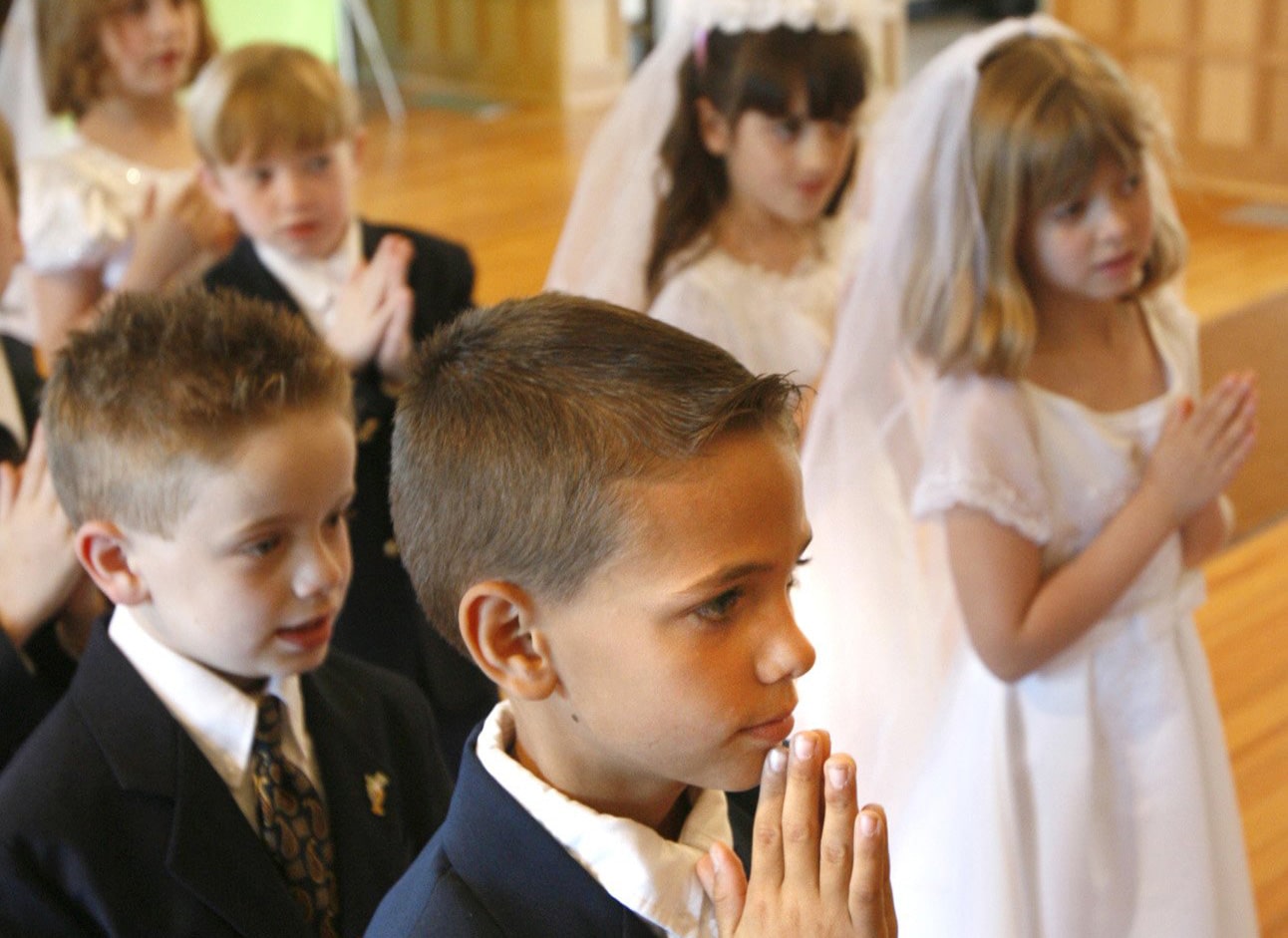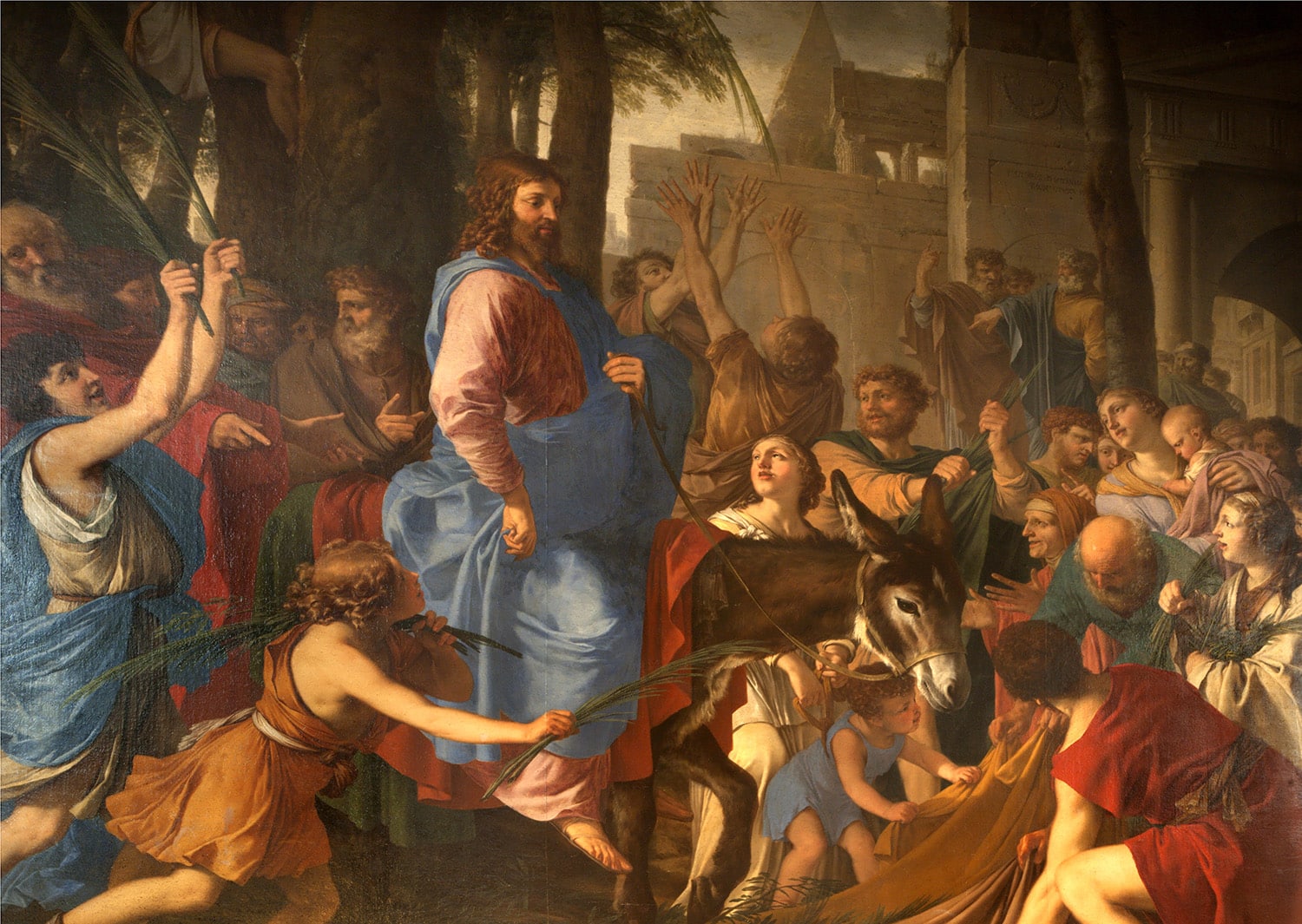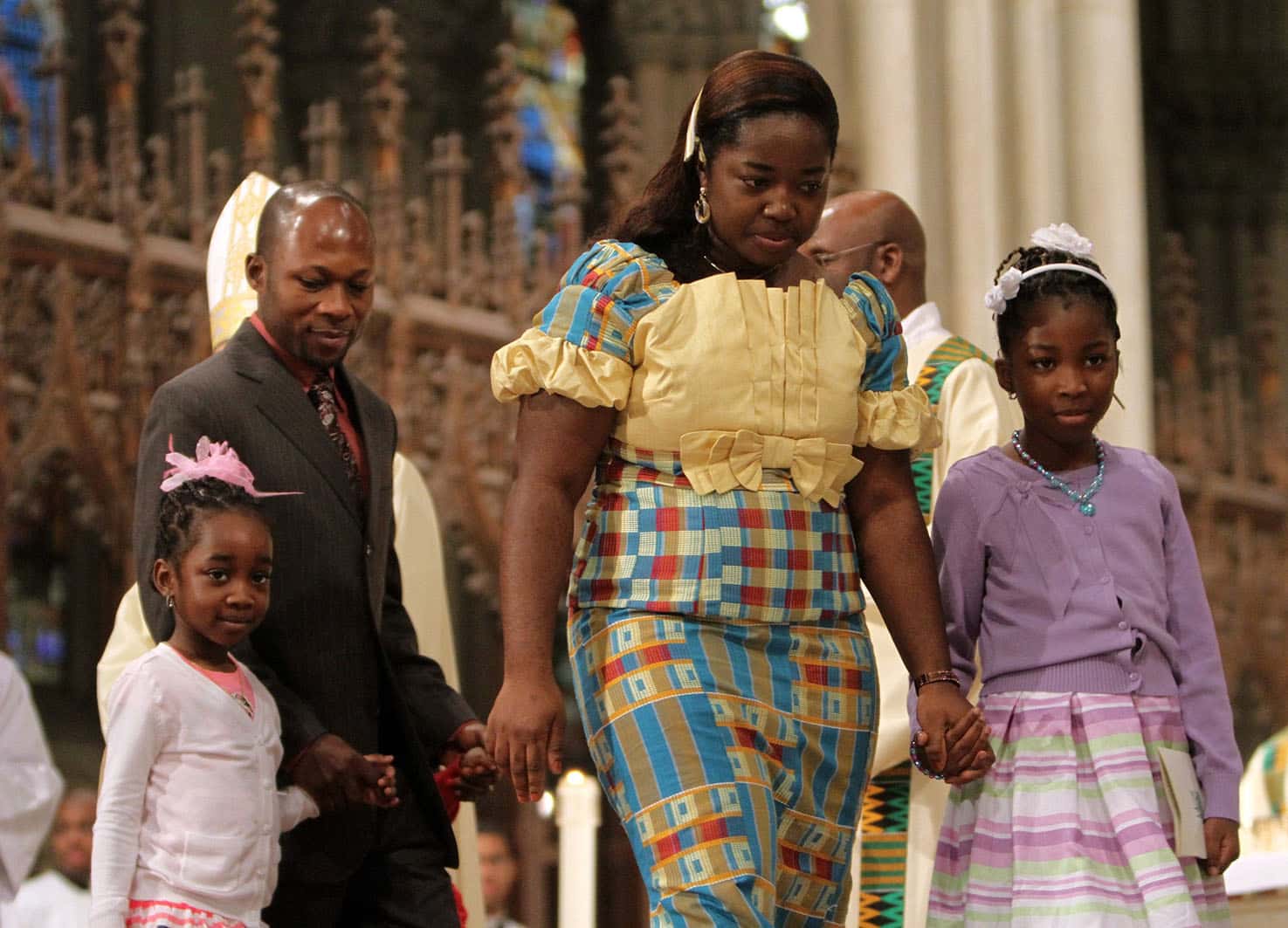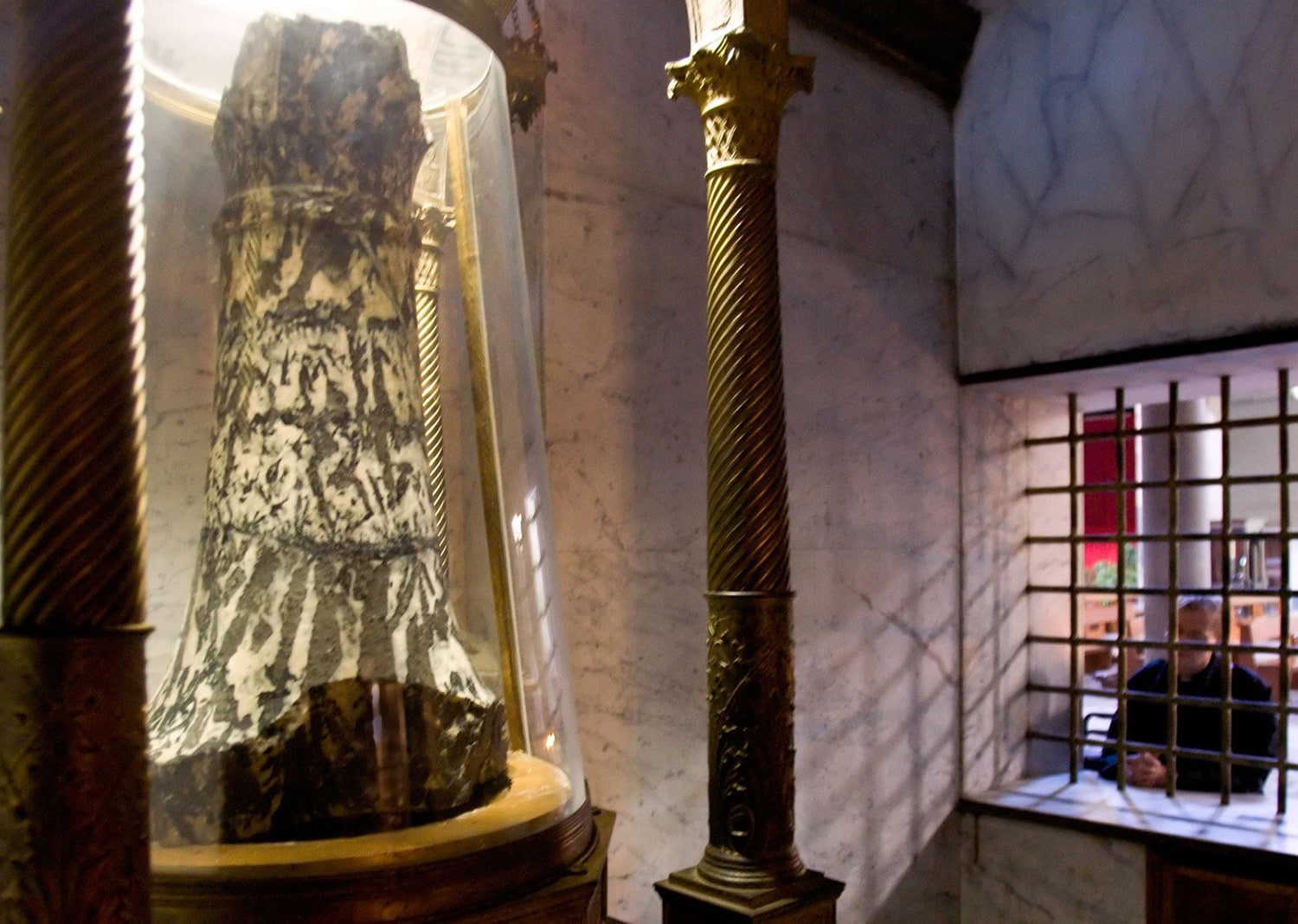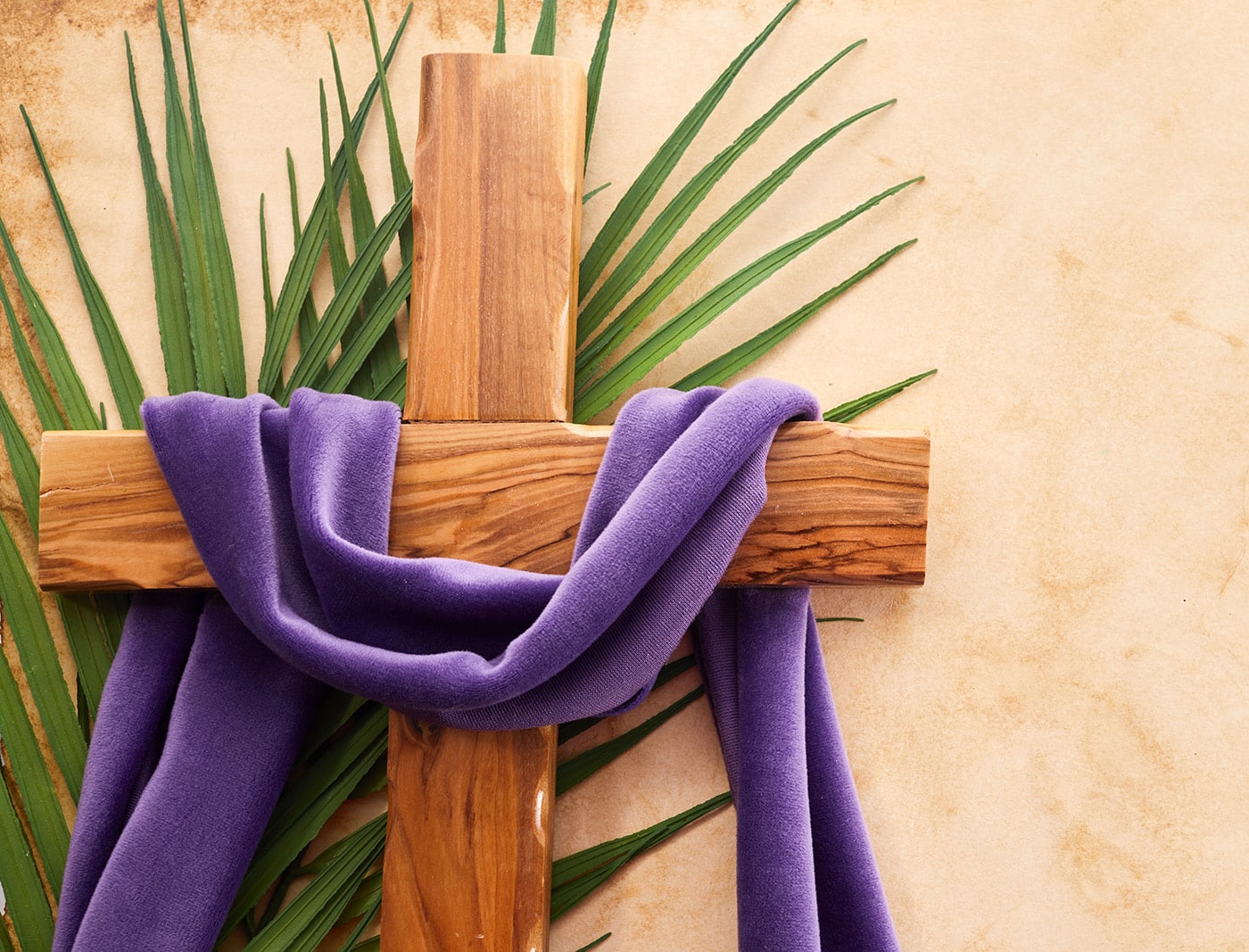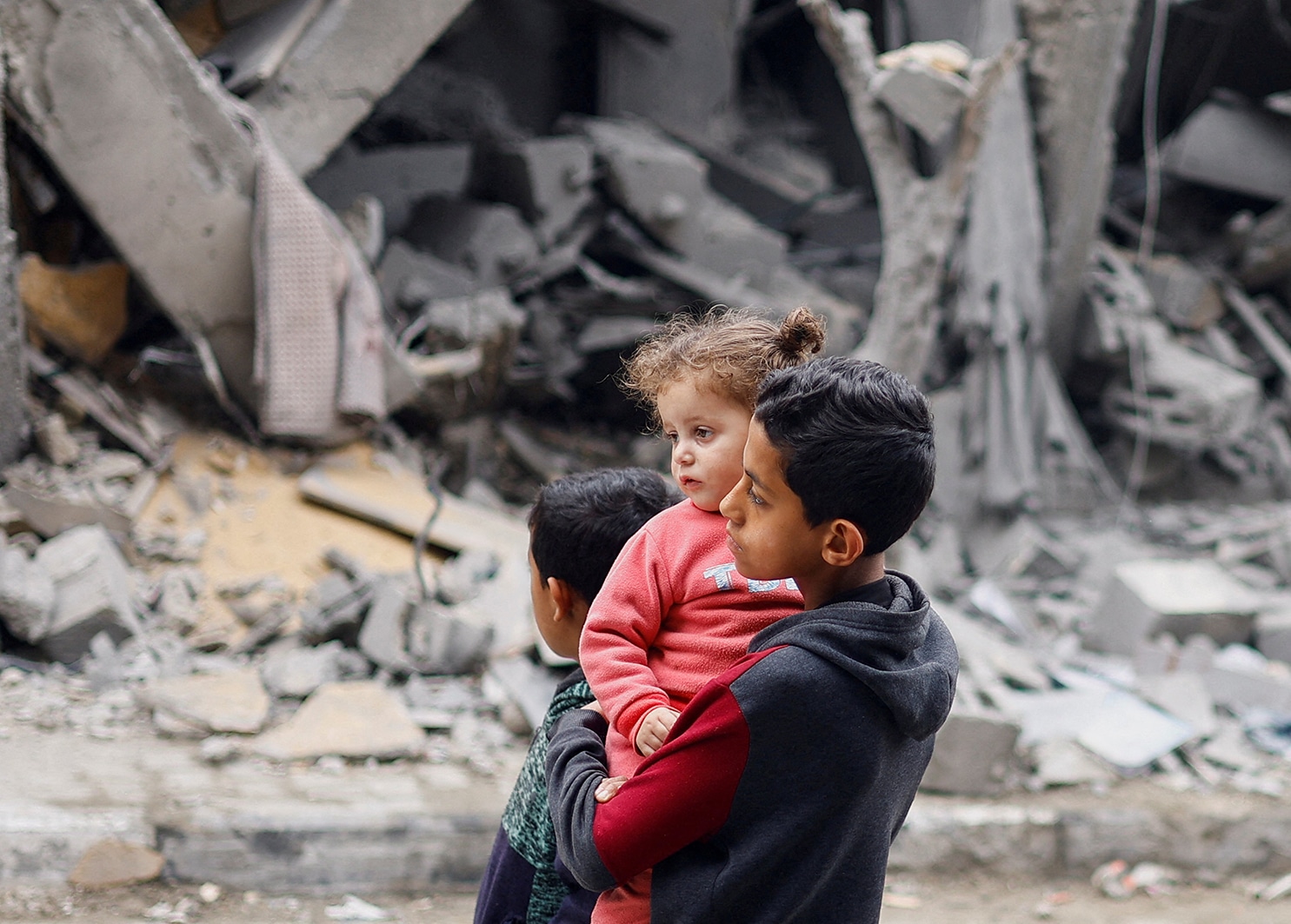In a 2019 study, the Pew Research Center found that just one-third of U.S. Catholics agree that the Eucharist is the body and blood of Christ. That is a sobering statistic. Even if we account for how the survey question may have been imprecisely formed, as a 2023 CARA study revealed, it still seems that the overwhelming majority of Catholics surveyed espoused belief in a more symbolic meaning of the bread and wine on the altar, as opposed to the sacramental, real presence of Jesus Christ.
The Eucharistic Revival in the United States seeks to respond to issues like this, to help increase both belief in and devotion to the Eucharist. One area that I have become especially attentive to is the formation of children for first Communion. Of all those Catholics that were surveyed and said that they believed only that the bread and wine of the altar were symbolic, most, if not all of them, had been formed for their first Communion and have likely received the Eucharist numerous times throughout their life. We could think that a Eucharistic Revival is about correcting and reforming the belief of adults and enkindling their devotion, but I say that we ought to think deeply about Eucharistic formation from the very beginning, which means the period of preparation for first Communion.
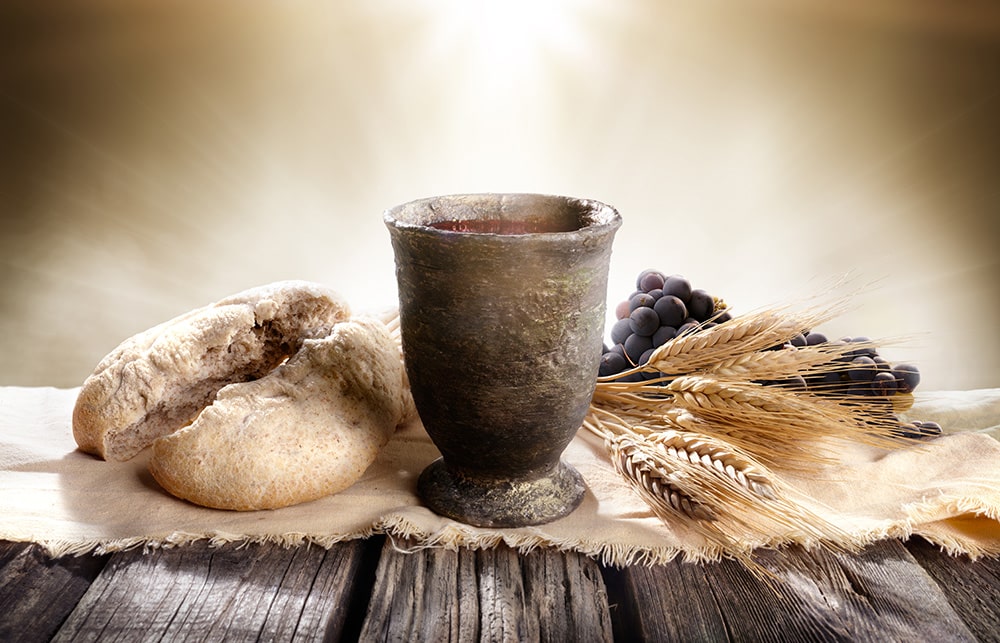
I am also interested in that issue because I am a parent, and four of my own children have been formed for first Communion, with two more to go. More than anything else, I want them to know and believe that the love of God does not stay far away, but draws near. The love of God is near enough for us to touch, near enough to taste. The Eucharist is the love of God Incarnate, given for us — the body and blood of Jesus Christ.
A few years ago, when our third child was preparing for first Communion, I started doing something different as a parent to help with this preparation. I started spending Sunday afternoons with my son, reading together biblical episodes of God feeding his people so we could talk about it, wonder at it, and he could draw the scenes with his own hand. We ended up covering 12 different episodes — six from the Old Testament, and six from the Gospels. By the end, what I found is that not only had we prepared together for his entry into the sacrament, but also that one consistent, resounding message came through in all that we read and talked about and drew. The one thing is very simple: God feeds his people. That is what God does. It was prefigured in the time before the coming of Christ and fulfilled in him. God feeds his people.
That is what I think we need to help our children to believe, with their whole hearts and minds: When they approach the altar to receive the bread and the wine, we want them to believe that this is God, feeding me.
Growing accustomed to the ways of God
St. Jerome, who translated the Bible into Latin in the fourth century, famously wrote that “Ignorance of Scripture is ignorance of Christ.” Why is that? Because Christ is the one through whom, with whom, and in whom all things are created. He is God’s saving action. He is the fulfillment of the Law and the prophets. He is God-with-us. To know him for who he is, as he is, means growing in the knowledge of how God creates, how God speaks and acts, and how God reveals himself through history and especially to the people of Israel. To know him who fulfills the Law, we need to learn about the Law. To know him who completes prophecy, we must study what is prophesied. Without becoming more and more immersed in Scripture throughout our lives, who Jesus really is becoming fuzzy and vague, even to the point that we create the Lord in our own image of what we think God is or should be, rather than letting God be God and allowing our hearts and minds to be transformed by him. If ignorance of Scripture is ignorance of Christ, then familiarity with Scripture forms us for intimacy with Christ, as he is.
As I wrote in my previous letter, being formed in reverence for the Eucharist is paramount and, indeed, the most important part of Eucharistic formation. But to be prepared to grow into what we might call “Eucharistic maturity” — to develop over a lifetime the willing and attentive openness to the Lord who comes to us in the sacrament — we must become more familiar with God’s actions and thus, with God’s “character,” if you will. Beginning with the period of preparation for first Communion, children (as well as adult initiates), the study of God’s actions and deeds as presented in Scripture prepares both the mind and the heart for a deeper knowledge of, familiarity with and admiration for the God who consistently and reliably feeds his people. Even for those episodes that are not new to us or to the children we accompany in this Scripture study, it is important to ponder these episodes with fresh eyes, notice details that might have eluded us previously, and slowly allow connections to emerge and move beyond first impressions.
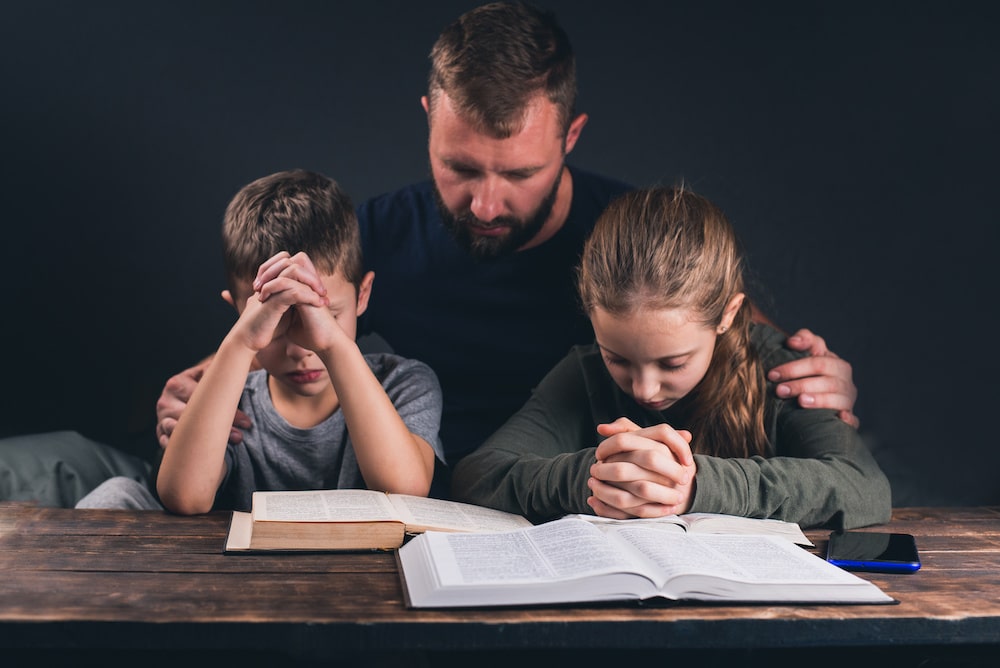
The Love of God Made Present
In the path of study that my children and I have traveled along together as they were preparing for their first Communion, we spend about an hour on separate days with each of the following six episodes from the Old Testament, where Jesus Christ is not named explicitly:
• The human being and the garden (Gn 2:4-9, 15-17)
• The forbidden fruit (Gn 3:1-10)
• The Passover (Ex 12:1-20)
• The manna (Ex 16:1-35)
• The prophet’s strength (1 Kgs 19)
• The abundant bread (2 Kgs 4:42-44)
In giving our attention and imaginations to these episodes, we encounter the ways in which Christ is anticipated and prefigured, though we do not fully see him in all his humility and glory until we turn our attention to the six Gospel episodes that come later, where Jesus Christ is front and center:
• Jesus feeds the five thousand (Mk 6:30-44)
• Jesus turns water to wine at Cana (Jn 2:1-11)
• Jesus is the bread of life (Jn 6:25-38, 41-42, 48-58)
• Jesus institutes the Eucharist at the Last Supper (Lk 22:1-2, 14-20)
• Jesus redeems the two bound for Emmaus (Lk 24:13-37)
• Jesus renews his disciples on the seashore (Jn 21:1-14)
By spending time with the 12 episodes of this biblical journey, we see that it is characteristic of God to feed his people. In other words, this is just what God does: God feeds. This is no distant or remote god; rather, this is the God who draws near and cares for us. He gives us what we need. Since what we need above all is him, he gives us himself as our daily bread. To know God is to know him as the one who gives life, who nourishes us, who cares for us. This is who God is. By studying together the actions of God in Scripture, we prepare our children to make a remarkable act of faith: to believe that when I receive the Eucharist, I am being fed by God. That one, simple belief opens them to being changed, just as it should open us to being changed over and over again.
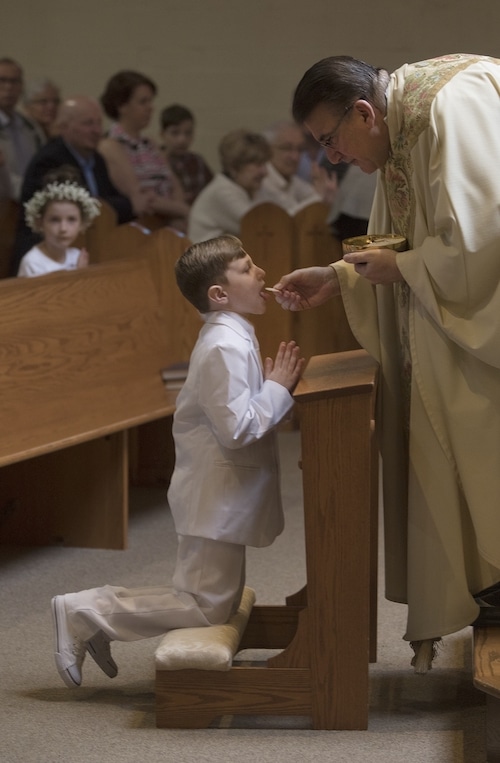
How to Begin
If you are interested in engaging your own children in this relational, biblical immersion into the love of God who feeds us, then my book “Fed by the Lord: At-Home Scriptural Formation to Prepare Children for First Communion” (Liturgical Press, $19.95) will be helpful both for your own edification and for the sake of guiding your children along this path. To get an “audio taste” of what you will find in the book, you can listen to the two-part podcast episode on the OSV-sponsored Church Life Today, where some of these biblical episodes are broken open (Part 1 and Part 2).
In all of this “study” of God’s actions in Scripture, the overriding hope we foster for each child — and for ourselves as adults, too — is that we will never forget (even when things in life might make believing difficult, that every time we approach the altar, the Lord gives himself to us as our food and our drink, so that we may have life.
Sincerely,


